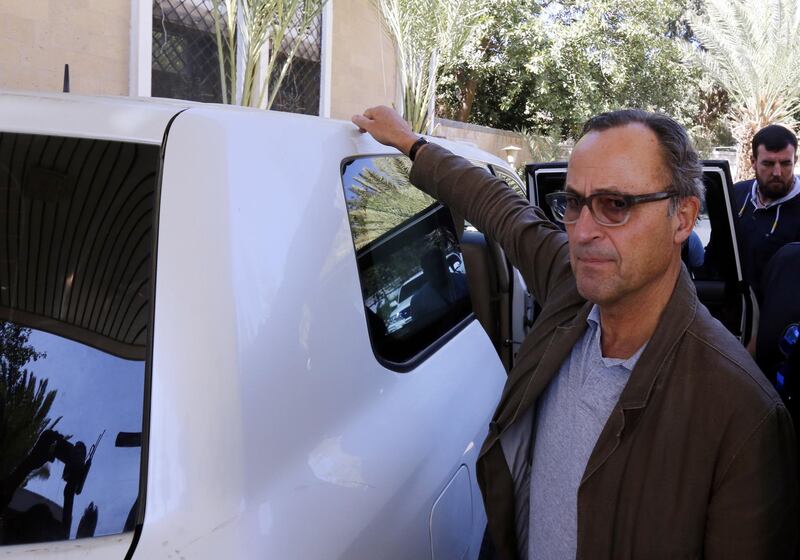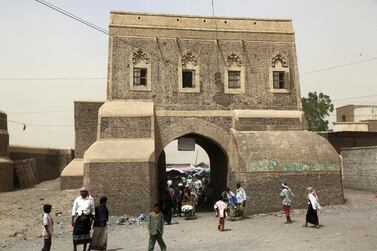The UN has denied reports that the head of the UN mission monitoring a ceasefire in Yemen's port city of Hodeidah had resigned.
Retired Dutch general Patrick Cammaert and his team arrived in Hodeidah last month to oversee the ceasefire agreed upon by Yemen’s government and the Houthi rebels at talks in Sweden earlier in December. He is the UN-designated chair of a Redeployment Coordination Committee, comprised of government and rebel representatives, set up to monitor its implementation.
Reports of Mr Cammaert's resignation emerged on Tuesday after weeks of tension over the rebels' refusal to honour the terms of the truce. Yemeni government officials also told The National that differences between Mr Cammaert and the UN special envoy to Yemen, Martin Griffiths, over dealings with the rebels had pushed him to resign.
“The various obstacles faced by General Cammaert, and the lack of co-operation by Mr Griffiths has created differences between the two officials, prompting General Cammaert to resign from his mission in Yemen,” the officials said.
However, a statement issued on the UN spokesperson's Twitter account on Wednesday refuted the reports and said Mr Cammaert was “continuing his work, contrary to media reports”.
Please note that the Chair of the Redeployment Coordination Committee General Patrick Cammaert continues his work, contrary to media reports.
— UN Spokesperson (@UN_Spokesperson) January 22, 2019
Mr Cammaert attended talks in Riyadh on Thursday between Mr Griffiths and members of President Abdrabu Mansur Hadi's government as the UN envoy tries to shore up the Hodeidah agreement.
The truce went into effect on December 18 and was to be followed by a rebel pullout from Hodeidah's ports and the withdrawal of all armed forces from the city and surrounding areas. However, the government and the Arab Coalition supporting it have reported repeated rebel violations of the ceasefire.
The rebel withdrawal from Hodeidah's ports has also been contentious, with accusations that the Houthis handed over control to their own forces rather than local forces as stipulated in the agreement.
Mr Cammaert "objected to the Houthis' false redeployment from Hodeidah", the Yemeni government officials told The National.
“The general wanted to take a firmer approach with the Houthis to ensure they completely withdraw from the city and its three ports,” they said.
The Houthis have boycotted meetings with Mr Cammaert in recent weeks and have also threatened to carry out drone strikes against government forces.
Mohammed Abdelsalam, who led the Houthi negotiating team in Sweden, said earlier this month his delegation boycotted the meetings because Mr Cammaert had steered “from the course of the agreement by implementing other agendas”.
A vehicle in Mr Cammaert's convoy was shot at last week but no one was injured.
The UN confirmed the attack but did not say who was behind it, while government officials placed the blame on the rebels.
The Houthi minister of youth, Hassan Zaid, this month called for Mr Cammaert to be barred from Hodeidah and its ports.
Mr Zaid said in a post on Facebook that “General Cammaert was trying to hand over Hodeidah to the Arab Coalition”.
President Hadi warned the international community on Thursday that the rebels were failing to respect the truce.
"The legitimate government remains committed to the Sweden accords," Mr Hadi said, according remarks reported by the state-run Saba news agency.
Mr Griffiths' talks with Mr Hadi on Thursday followed meetings with the Houthis in the rebel-held Yemeni capital earlier in the week. It is the second time he has travelled to Sanaa and Riyadh this month.







